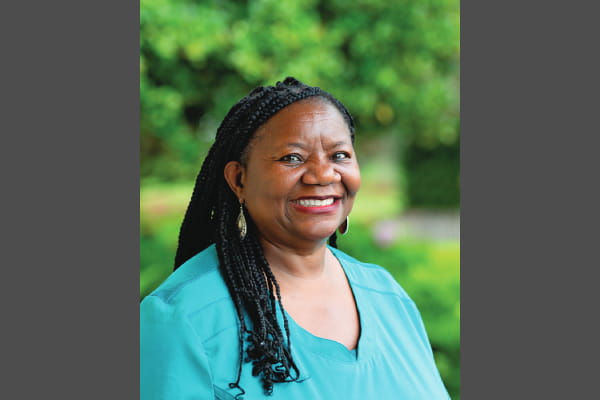In Pensacola, Ascension Sacred Heart is working to address those disparities in birth outcomes by improving access to prenatal care and post-pregnancy visits at the hospital's Women's Care Center. In some cases, the maternal health project is finding that access can be improved by simply giving patients a Lyft.
The OB-GYN clinic at 1657 Trinity Drive provides a dedicated staff, including a case manager, that provides clinical care and other support to pregnant patients. The team works to identify and overcome barriers that prevent some of the community's most vulnerable women from getting to their appointments for prenatal care. By improving care before and after birth, Ascension Sacred Heart aims to reduce the number of babies born prematurely and with low birth weights, and to reduce the rate of complications for mothers during and after childbirth.
The goal is to ensure compassionate care and support for pregnancies that end with good outcomes for both the new mothers and their babies.
"The key is that they get to their appointments," said Kate Peabody, maternal health navigator and social worker at the Women's Care Center. "We listen. We talk to the patients to find out what the barriers are…The bottom line is to have healthy, full-term outcomes for the babies."
The Women's Care Center team has found that the biggest obstacles that prevent women from getting prenatal care and post-pregnancy care are:
- A lack of transportation
- A lack of insurance and financial resources
- Lack of child care
When the center's patients miss an appointment, Peabody works to find out what's going on at the patient's home. If the pregnant mom is having trouble finding transportation or child care, the program will arrange transportation or connect her with community services to improve the situation.
Nationwide, researchers have found that Black mothers experience the highest rate of pregnancy-related deaths and the highest infant mortality rates among all racial and ethnic groups. Socioeconomic disadvantages also have been linked to higher risk of adverse birth outcomes.
Approximately 65% of the care center's patients qualify for Medicaid. Other patients include undocumented immigrants and working mothers who earn enough income so that they don't qualify for Medicaid but lack sufficient funds to pay for medical expenses.
"Some of our patients have no car. Some have no driver's license or they don't have a job that would allow them to pay for gasoline," said Angela Williams, practice manager at the OB-GYN center.
In other cases, patients who qualify for Medicaid are not aware that Medicaid's benefits include transportation to appointments if 72-hours notice is provided.
One innovative solution initiated by the maternal health program is to connect patients to Lyft, a transportation service that lets riders call a driver and car with the Lyft app. Over the past year, Ascension Sacred Heart has provided more than 560 Lyft rides so patients can get to their appointments.
"When transportation cannot be arranged through Medicaid, we pay for the rides. The value is well worth the cost," said Williams. "If the patient calls and says they have to cancel an appointment due to transportation, we offer to send a Lyft driver."
A study conducted by researchers with the University of Florida OB-GYN Residency Program at Ascension Sacred Heart found that the efforts to remove barriers to care have produced a significant decrease in the number of missed clinic appointments.
The researchers looked at 2,320 prenatal appointments in 2019 and compared those numbers to a similar period in 2021 after the maternal health navigator was hired to improve clinic access. "Our research showed with the addition of a case manager, our patients made more of their prenatal appointments," said Dr. Stuart Shippey, the director of research for the OB-GYN Residency Program. "Missed appointments decreased from 19% to 13%."
In addition to transportation and child care, food insecurity also can be a social barrier to maternal health.
“To help fill the void of hunger, our local Population Health team formed a food pantry to provide healthy staple items to patients in need of food assistance,” Peabody said. “Recently, I received a referral for a patient from another OB-GYN clinic who was in need of support. I was able to quickly connect the patient to the team leading the pantry. They jumped in immediately –-- packing bags of fresh and healthy food such as fruits and vegetables and delivering it to the patient, who had also lacked transportation to pick it up.”
To address the barrier of child care, the Women's Care Center is able to provide virtual visits with a physician in situations where the patients do not require a physical exam or imaging test. Online visits can spare women from having to arrange child care and transportation.
To overcome other barriers to care such as rent, utilities and food costs, the maternal health program also works with community partners including 90Works, Catholic Charities, Healthy Start, the Florida Department of Health, United Ministries, the University of West Florida and the Salvation Army, Ascension Population Health Food Pantry and Studer Family Children's Hospital Food Pantry Program.
"We are making a difference," Williams said. "It is what brings me to work every day."
For more information about the Women's Care Center and the Maternal Health Initiative, call 850-416-2400.

